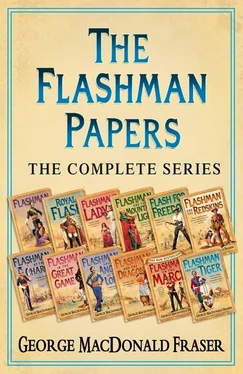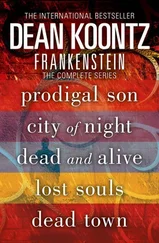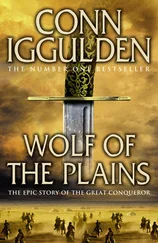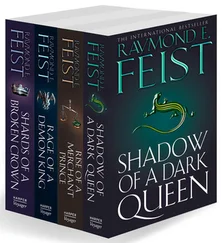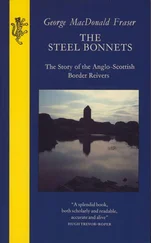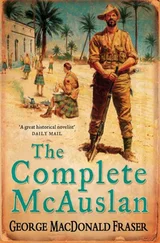Another thing I learned, because of the regiment to which I was due to be posted, was how to manage a lance. I had been useful at sword exercise in the Hussars, but a lance is something else again. Any fool can couch it and ride straight, but if you are to be any use at all you must be able to handle all nine feet of it so that you can pick a playing card off the ground with the point, or pink a running rabbit. I was determined to shine among the Company men, so I hired a native rissalder of the Bengal Cavalry to teach me; I had no thought then of anything beyond tilting at dummies or wild pig sticking, and the thought of couching a lance against enemy cavalry was not one that I dwelt on much. But those lessons were to save my life once at least – so that was more well-spent money. They also settled the question of my immediate future, in an odd way.
I was out on the maidan one morning with my rissalder, a big, lean, ugly devil of the Pathan people of the frontier, named Muhammed Iqbal. He was a splendid horseman and managed a lance perfectly, and under his guidance I was learning quickly. That morning he had me tilting at pegs, and I speared so many that he said, grinning, that he must charge me more for my lessons.
We were trotting off the maidan, which was fairly empty that morning, except for a palankeen escorted by a couple of officers, which excited my curiosity a little, when Iqbal suddenly shouted:
“See, huzoor, a better target than little pegs!” and pointed towards a pariah dog which was snuffling about some fifty yards away. Iqbal couched his lance and went for it, but it darted out of his way, so I roared “Tally-ho!” and set off in pursuit. Iqbal was still ahead of me, but I was only a couple of lengths behind when he made another thrust at the pi-dog, which was racing ahead of him, swerving and yelping. He missed again, and yelled a curse, and the pi-dog suddenly turned almost beneath his hooves and leaped up at his foot. I dropped my point and by great good luck spitted the beast through the body.
With a shout of triumph I heaved him, twisting and still yelping, high into the air, and he fell behind me. Iqbal cried: “Shabash!” and I was beginning to crow over him when a voice shouted:
“You there! You, sir! Come here, if you please, this moment.”
It came from the palankeen, towards which our run had taken us. The curtains were drawn, and the caller was revealed as a portly, fierce-looking gentleman in a frock coat, with a sun-browned face and a fine bald head. He had taken off his hat, and was waving insistently, so I rode across.
“Good morning,” says he, very civil. “May I inquire your name?”
It did not need the presence of the two mounted dandies by the palankeen to tell me that this was a highly senior officer. Wondering, I introduced myself.
“Well, congratulations, Mr Flashman,” says he. “Smart a piece of work as I’ve seen this year: if we had a regiment who could all manage a lance as well as you we’d have no trouble with damned Sikhs and Afghans, eh, Bennet?”
“Indeed not, sir,” said one of the exquisite aides, eyeing me. “Mr Flashman; I seem to know the name. Are you not lately of the 11th Hussars, at home?”
“Eh, what’s that?” said his chief, giving me a bright grey eye. “Bigod, so he is; see his Cherrypicker pants” – I was still wearing the pink breeches of the Hussars, which strictly I had no right to do, but they set off my figure admirably – “so he is, Bennet. Now, dammit, Flashman, Flashman – of course, the affair last year! You’re the deloper! Well I’m damned. What are you doing here, sir, in God’s name?”
I explained, cautiously, trying to hint without actually saying so, that my arrival in India had followed directly from my meeting with Bernier (which was almost true, anyway), and my questioner whistled and exclaimed in excitement. I suppose I was enough of a novelty to rouse his interest, and he asked me a good deal about myself, which I answered fairly truthfully; in my turn I learned as he questioned me that he was General Crawford, on the staff of the Governor-General, and as such a commander of influence and importance.
“Bigod, you’ve had bad luck, Flashman,” says he. “Banished from the lofty Cherrypickers, eh? Damned nonsense, but these blasted militia colonels like Cardigan have no sense. Eh, Bennet? And you’re bound for Company service, are you? Well, the pay’s good, but it’s a damned shame. Waste your life teaching the sowars how to perform on galloping field days. Damned dusty work. Well, well, Flashman, I wish you success. Good day to you, sir.”
And that would have settled that, no doubt, but for a queer chance. I had been sitting with my lance at rest, the point six feet above my head, and some of the pi-dog’s blood dribbled down onto my hand; I gave an exclamation of disgust, and turning to Iqbal, who was sitting silently behind, I said:
“Khabadar, rissaldar! Larnce sarf karo, juldi!” which is to say, “Look out, sergeant-major. Take this lance and get it clean, quickly.” And with that I tossed it to him. He caught it, and I turned back to take my leave of Crawford. He had stopped in the act of pulling his palankeen curtains.
“Here, Flashman,” says he. “How long have you been in India? What, three weeks, you say? But you speak the lingo, dammit!”
“Only a word or two, sir.”
“Don’t tell me, sir; I heard several words. Damned sight more than I learned in thirty years. Eh, Bennet? Too many ‘ee’s’ and ‘um’s’ for me. But that’s damned extraordinary, young man. How’d you pick it up?”
I did more explaining, about my gift for languages, and he shook his bald head and said he’d never heard the like. “A born linguist and a born lancer, bigod. Rare combination – too dam’ good for Company cavalry – all ride like pigs, anyway. Look here, young Flashman, I can’t think at this time in the morning. You call on me tonight, d’ye hear? We’ll go into this further. Hey, Bennet?”
And presently away he went, but I did call on him that evening, resplendent in my Cherrypicker togs, as he called them, and he looked at me and said:
“By God, Emily Eden mustn’t miss this! She’d never forgive me!”
To my surprise, this was his way of indicating that I should go with him to the Governor-General’s palace, where he was due for dinner, so of course I went, and had the privilege of drinking lemonade with their excellencies on their great marble verandah, while a splendid company stood about, like a small court, and I saw more quality in three seconds than in my three weeks in Calcutta. Which was very pleasant, but Crawford almost spoiled it by telling Lord Auckland about my duel with Bernier, at which he and Lady Emily, who was his sister, looked rather stiff – they were a stuffy pair, I thought – until I said fairly coolly to Crawford that I would have avoided the whole business if I could, but it had been forced upon Me. At this Auckland nodded approval, and when it came out that I had been under Arnold at Rugby, the old bastard became downright civil. Lady Emily was even more so – thank God for Cherrypicker pants – and when she discovered I was only nineteen years old she nodded sadly, and spoke of the fair young shoots on the tree of empire.
She asked about my family, and when she learned I had a wife in England, she said:
“So young to be parted. How hard the service is.”
Her brother observed, fairly drily, that there was nothing to prevent an officer having his wife in India with him, but I muttered something about winning my spurs, an inspired piece of nonsense which pleased Lady E. Her brother remarked that an astonishing number of young officers somehow survived the absence of a wife’s consolation, and Crawford chortled, but Lady E. was on my side by now, and giving them her shoulder, asked where I was to be stationed.
Читать дальше
